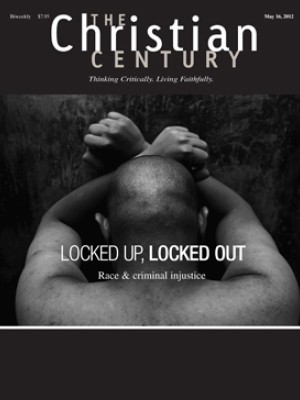Repentant ‘hatchet man,’ Colson was evangelical icon
Charles W. Colson, the Watergate felon who became an evangelical icon and born-again advocate for prisoners, died April 21 after a brief illness. He was 80.
Despite an early reputation as a cutthroat “hatchet man” for President Richard M. Nixon, Colson later built a legacy of repentance based on his work with Prison Fellowship, a ministry he designed to bring Bible study and a Christian message to prison inmates and their families. Colson founded the group in 1976 upon release from federal prison on Watergate-related charges. Prison reform and advocating for inmates became his life’s work and his lasting legacy.
Colson had undergone surgery March 31 to remove a pool of clotted blood on his brain. On April 18, Prison Fellowship Ministries CEO Jim Liske told staff and supporters that Colson would soon be “home with the Lord.” Due to his illness, for the first time in 34 years he did not spend Easter Sunday preaching to prisoners, his ministry said.
Read our latest issue or browse back issues.
“For more than 35 years, Chuck Colson, a former prisoner himself, has had a tremendous ministry reaching into prisons and jails with the saving gospel of Jesus Christ,” evangelist Billy Graham said in a statement. “When I get to heaven and see Chuck again, I believe I will also see many, many people there whose lives have been transformed because of the message he shared with them. He will be greatly missed by many, including me. I count it a privilege to have called him friend.”
In many ways, Colson’s life personified the evangelical ethos of a sinner in search of redemption after a dramatic personal encounter with Jesus. He also embodied the evangelical movement’s embrace of conservative social issues, often as a happy warrior.
Today, Prison Fellowship has more than 14,000 volunteers working in more than 1,300 prisons across the country. More than 150,000 prisoners participate in its Bible studies and seminars every year. The organization founded by Colson also provides postrelease pastoring for thousands of ex-convicts and supplies Christmas gifts to more than 300,000 kids with a locked-up parent through its Angel Tree program.
In 1993, Colson won the $1 million Templeton Prize for Progress in Religion and donated the money to his ministry. In addition to his work with Prison Fellowship, Colson authored more than 30 books that sold more than 5 million copies, including his 1976 autobiography, Born Again.
As recently as February, Colson was still contributing to political debates, writing an open letter with fellow evangelical leader Timothy George that criticized the Obama administration’s health-care contraception mandate. “We do not exaggerate when we say that this is the greatest threat to religious freedom in our lifetime,” he wrote with George, comparing the mandate to policies of Nazi leader Adolf Hitler.
In 2009, Colson was a chief architect of the Manhattan Declaration, which advocated grassroots resistance to abortion, euthanasia and same-sex marriage. He called the manifesto “one of the most important documents produced by the American church, at least in my lifetime.” —RNS



